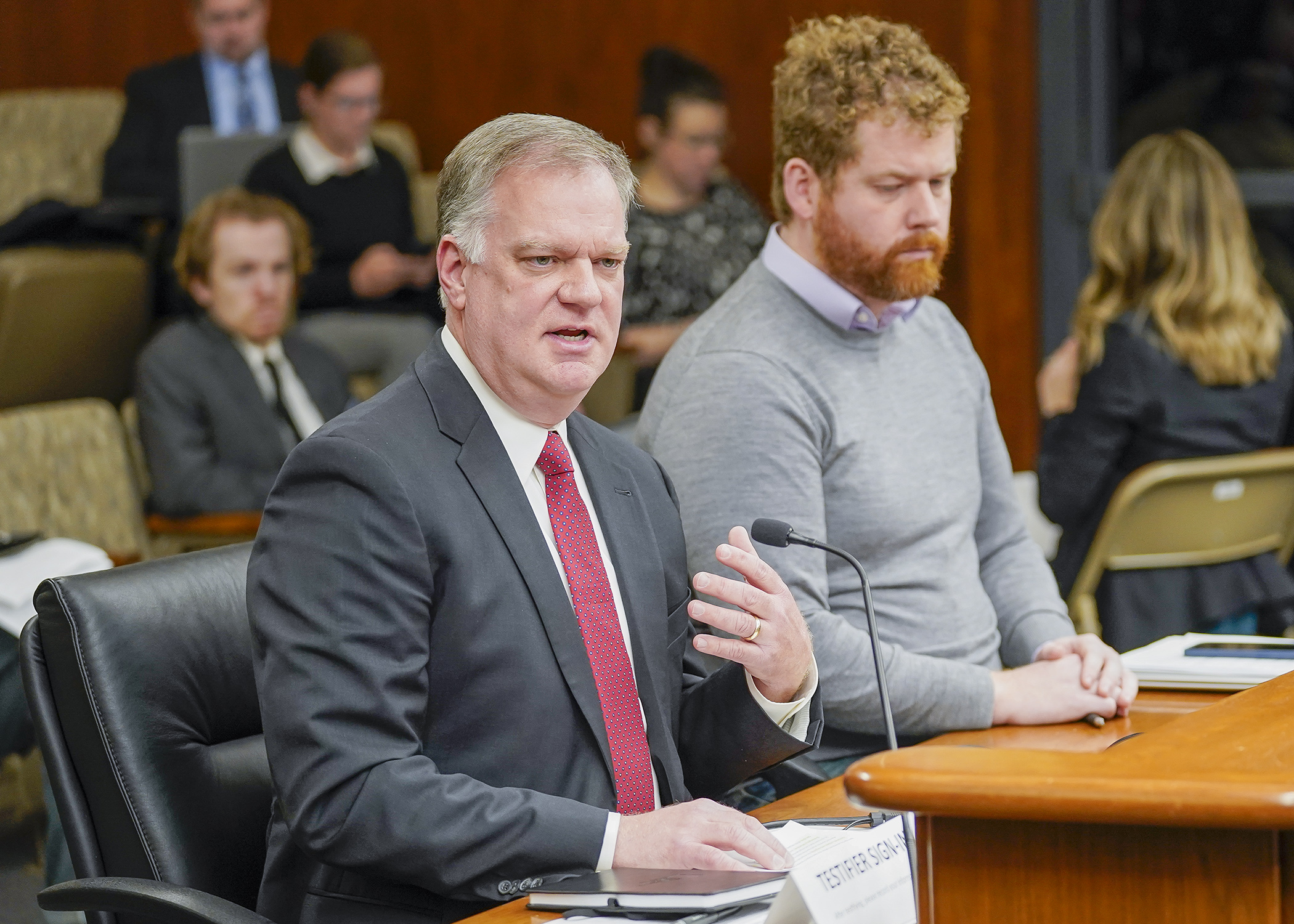Bill to ban price gouging during emergencies clears commerce committee

For Rep. Zack Stephenson (DFL-Coon Rapids), the essence of a bill he sponsors to combat price gouging by retailers during natural or man-made emergencies is simply a matter of morality.
HF6 would penalize retailers who charge an “unconsciously excessive price” for essential goods or services during public emergency situations, such as recent power outages in Texas and the aftermath of Hurricane Ian in Florida.
“The fact that people profited to an absurd extent and took advantage of the pain and misery of others in a moment of despair is just plain wrong,” he said.
The House Commerce Finance and Policy Committee approved the bill, as amended, via voice vote Monday and sent it to the House Judiciary Finance and Civil Law Committee.
A price more than 25 percent above a seller’s average price during the 60-day period before an executive order declared emergency would be deemed an “unconscionably excessive price.” Violators could be fined up to $1,000 per sale or transaction, with a maximum penalty of $25,000 per day.
The attorney general would oversee price gouging investigations and fines.
Some of the essential goods or services that would be protected from excessive price spikes include food, water, fuel, shelter, transportation, health care services, and medical supplies.
Safeguards are included for retailers to prevent them from being penalized if price increases are “substantially related to an increase in the cost of manufacturing, replacing, providing, or selling a good or service.”
Gary Wertish, president of the Minnesota Farmers Union, supports the bill. He said farmers he represents suffered great economic harm during the COVID-19 pandemic due to price gouging from large-scale, corporate agricultural suppliers.
“It is critical that Minnesota has additional tools for cracking down on corporate profiteering, and prohibiting price gouging is a first step,” he said.
Rep. Harry Niska (R-Ramsey) unsuccessfully offered an amendment to notify retailers if the attorney general were investigating them for price gouging and whether the investigation was leading to an action in court.
Stephenson said the attorney general never shares such information to any party the office is investigating and sees no reason to make an exception to that practice.
Related Articles
Search Session Daily
Advanced Search OptionsPriority Dailies
Speaker Emerita Melissa Hortman, husband killed in attack
By HPIS Staff House Speaker Emerita Melissa Hortman (DFL-Brooklyn Park) and her husband, Mark, were fatally shot in their home early Saturday morning.
Gov. Tim Walz announced the news dur...
House Speaker Emerita Melissa Hortman (DFL-Brooklyn Park) and her husband, Mark, were fatally shot in their home early Saturday morning.
Gov. Tim Walz announced the news dur...
Lawmakers deliver budget bills to governor's desk in one-day special session
By Mike Cook About that talk of needing all 21 hours left in a legislative day to complete a special session?
House members were more than up to the challenge Monday. Beginning at 10 a.m...
About that talk of needing all 21 hours left in a legislative day to complete a special session?
House members were more than up to the challenge Monday. Beginning at 10 a.m...